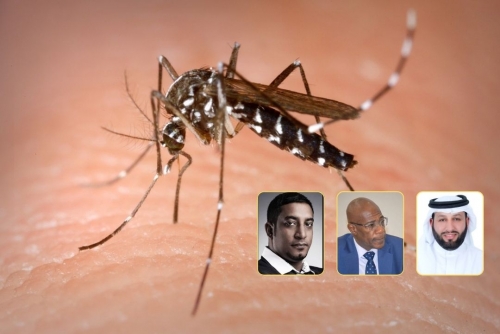Bahrain is at risk of dangerous mosquito species, including those that can carry diseases like dengue fever, Zika virus, and malaria, according to health pest control expert Khalid Bu Rshaid. He noted that neglect by authorities has led to an increase in mosquito populations in recent years, especially before the rainy season. Bu Rshaid stressed the importance of proactive measures, such as intensified spraying campaigns in areas with stagnant water, to prevent mosquito breeding.
The current rate of mosquito infestation in Bahrain has increased significantly over the years, particularly during rainfall, making it crucial to implement effective strategies to limit the spread of these pests. Bu Rshaid recommended improving drainage systems and eliminating stagnant water in areas like Tubli Bay, Al Lawzi, and Al Buhair to ensure the health and safety of citizens. He also emphasized the need for community awareness and education programs to reduce the breeding of mosquitoes.
To combat mosquito infestations in homes, Bu Rshaid suggested using incense, ultraviolet light traps, and window screens as effective methods for repelling mosquitoes. He highlighted the importance of targeting locally breeding mosquitoes to address the issue effectively, calling for collaboration between ministries and local authorities in promoting personal and community hygiene. Bu Rshaid urged citizens to report any water collections that could lead to mosquito breeding and to seek medical attention immediately if unusual reactions to mosquito bites occur.
Mubarak Faraj, a member of the Southern Municipal Council, and Dr Salman Mohsen Abdullah, a Northern Municipal Council member, acknowledged the efforts made this year by the Kingdom and Ministry of Health to combat mosquitoes. They noted a significant decrease in mosquito presence compared to previous years, attributing it to the intensified campaigns and the collaboration of all concerned parties. Bu Rshaid’s warning against the risks of mosquito bites and the importance of immediate medical attention highlighted the seriousness of the situation, underscoring the need for continuous proactive measures to protect public health.































